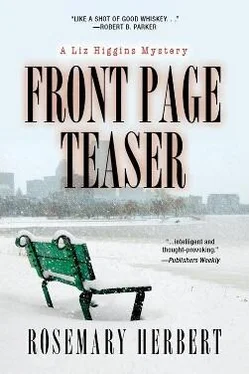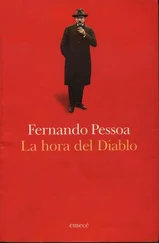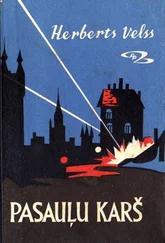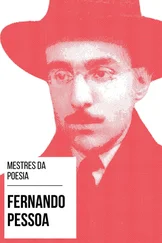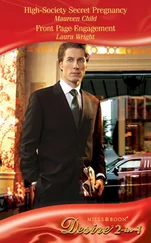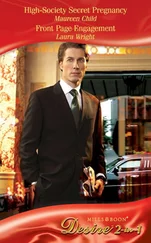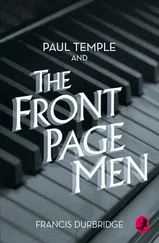“Maybe another time. It’s been a long day. But thank you for sharing your expertise.”
“Bring me a drop of blood from the scene, and I’ll tell you more.”
“Yeah, sure,” Liz thought but did not say aloud. Instead, she thanked Kinnaird warmly and headed into the still-falling snow. Thanks to its proximity to the police station, the parking lot had been plowed again. The Tracer’s tires made it through the small mound the plow had pushed against them. It was a greater challenge to drive through the light industry and warehouse area that stood between Brighton and Gravesend Street in Allston, where no municipal snowplow had passed through since the storm’s start. Fortunately, Sal Mione of Mione’s Towing and Plow Services had cleared not just the driveway at Liz’s place, but—as he often did when the city plow neglected the area—a single lane of Gravesend Street to her place.
He’d never accept a monetary tip, but Liz made a mental note to give him the box of PG Tips tea and chocolate digestive biscuits she’d bought for him a few days previously. She knew they were comfort foods reminiscent of his boyhood. Although he bore an Italian name, he spoke in an appealing Cockney accent, having grown up near the Angel Tube Station in London. Corny as it was, she meant it when she told him he was an angel. Without him, she’d probably lose her job waiting for plows that cleared school, retail, and residential areas in order of priority.
Prudence seemed bound to trip Liz as the reporter entered the little house under the huge billboard. Her dish was half-filled with dry food, but the cat loved her evening treat of gravy-laden canned meat. Liz fed the cat and poured herself a glass of Chardonnay. Then she sat down in her green chair facing the flaming gas fireplace, put her feet up on her hassock, pulled the purple and white afghan over her knees, and spread open The Oxford Book of American Detective Stories she’d acquired in Worcester. Turning on a CD of Erik Satie’s Gymnopédies , she read Susan Glaspell’s story “A Jury of Her Peers” from start to finish.
The story was as melancholy as Satie’s first Gymnopédie . A woman has murdered her husband. But while the police blunder around looking at big, obvious clues, such as the rope he has been strangled with, the farmers’ wives see the significance of unfinished work in their friend’s kitchen. They recognize that an open sugar bag beside a dish means the woman was interrupted in her work. And they find heartrending evidence that their friend was driven to kill her husband. The men see the women’s concerns as “trifles,” but these trifles turn out to be the keys to the mystery.
Liz turned off the third Gymnopédie —a dissonant, jarring piece—and leaned back in her chair, pondering what she’d read. The Glaspell story was a favorite of Ellen Johansson. Had it come to mind for her during the incident in her kitchen?
Liz didn’t like to entertain the notion, but suppose Ellen had perpetrated a crime, as Millie Wright in Glaspell’s story had done? How would the insights from the story help her to hide it? Would she slash her own face and fling blood from it onto the countertop? This would go far toward suggesting she was a victim of someone else. And what if Ellen had been attacked by an assailant? How would the Glaspell story help her in that case? She might try to shed her attacker’s blood to leave evidence for those who sought to help her. Much rested on the analysis of the blood, information that had not yet been released. But perhaps the scene of the crime would hold additional clues.
Liz got up from her chair, picked up her envelope of photos, turned on the bright light over her own kitchen counter, and spread out DeZona’s prints there. For Glaspell, it was an open bag of sugar beside a partly filled sugar bowl that started the wheels turning toward an understanding of the crime. But in Ellen’s kitchen everything looked so well organized that the only thing out of place was the blood splattered over the ingredients.
The blackboard in the photo caught Liz’s eye again. “FORGET ME NOT,” Ellen had written in apparent haste. But the hastiness of the writing could have been feigned. It was hard to imagine an assailant standing by while she wrote a note to her loved ones, even a three-word message. Did those words suggest Ellen intended to leave? Could they indicate she was contemplating taking her own life?
Liz matched the ingredients listed on the blackboard with those in the dishes. There were the chocolate chips and the coconut and other, unlisted ingredients, too. Only the M&Ms were not poured out into a custard dish. But then, Liz thought, no one would decorate delicate spritz cookies with M&Ms. No doubt the M&Ms were stored away for another baking project or to serve in a candy dish at the holidays.
What else was in the photographs? Three poinsettia plants, dolled up with big bows and labeled with tags, stood to one side on the counter. Whose names were on them? Liz took a magnifying glass out of her desk to examine the photos more closely. One tag was out of sight. Another read “Margaret.” And the last read “Ms. Winters.” Laura .
Liz picked up the phone and dialed. Laura answered.
“Yes, Veronica gave me the plant before I left. She would have given it to me at the aftercare holiday party, but she was being taken to her grandmother’s early.”
“Could you set the plant aside where no one will handle it? And if you have the tag that was on it, please save that, too. I’ll call you back in a few minutes.”
“I don’t have the tag, Liz. I guess it got lost in the shuffle. With everything that was going on, I was surprised Veronica thought to give me a gift at all.”
“Never mind. The plant is the main thing.”
Liz looked up the Green Briar in the telephone book and called the bar. She could hear Irish music still being played there. The bartender told her to hold on while he fetched Cormac.
“Kinnaird here. May I help you?”
“It’s Liz Higgins again. I may have something useful—a poinsettia plant that was on the counter at the crime scene. It was given as a gift to the babysitter who took it home to Brighton. Not very far from the Green Briar.”
“It’s strange that it was not sprayed with luminol. You’re in luck. I’ve got my car. If she’s willing, I could stop by and collect it.”
Liz provided Kinnaird with the address, phoned Laura to have her wait up for him, and decided it was time for her to get some rest. She changed into a long T-shirt and snuggled under the covers, recalling, as she dozed off, the Worcester book dealer’s words: “This woman flies from home but knows any loose ends she leaves will be seen as significant— if a woman gets the chance to look things over.”
The sound of snowplows scraping along the Massachusetts Turnpike awoke Liz more than once in the night. Each time, she turned over and returned to sleep until one pre-dawn noisemaker was just too much for Prudence, who dashed around the small abode in a frenzy, making Liz laugh herself awake. In her mad movements, the cat had skittered across DeZona’s photos, causing one to drop to the floor. Flipping her fireplace switch to fill the room with flickering light, Liz crossed the room to pick up the photo. Turning on her kitchen counter light and the stove burner under her kettle, she measured some coffee into a filter and took another look at the photo.
This one was a shot of the Johanssons’ living room. In it could be seen part of the book bearing an Arabic title. The kitchen crime scene had naturally become the focus of investigators’ and reporters’ attention. Had anyone taken a hard look at the living room, too?
Читать дальше
